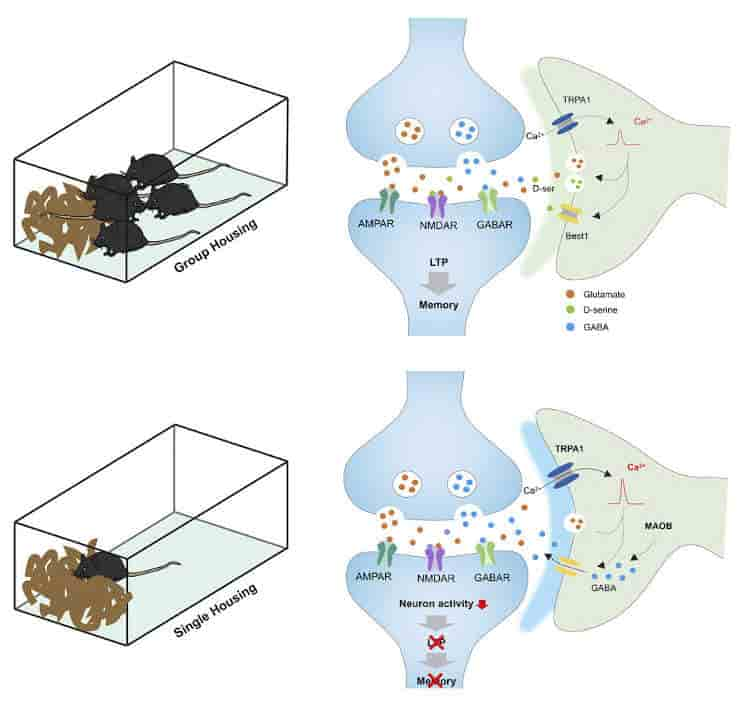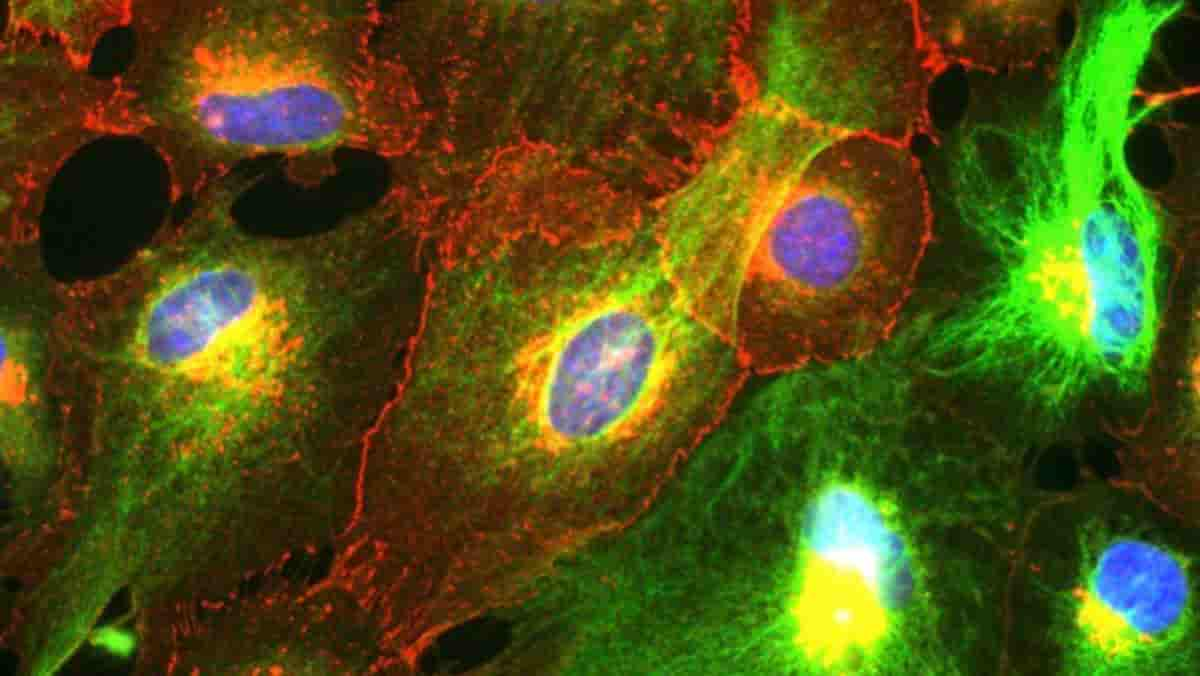Baylor College of Medicine researchers using animal models report that during social isolation, astrocytes become hyperactive, suppressing brain circuit function and memory formation. Importantly, inhibiting astrocyte hyperactivity reversed the cognitive deficits caused by social deprivation.
Social isolation results in deficits in memory and learning and other behavioural alterations. Many brain studies have looked at how social deprivation affects neurons, but little is known about how it affects astrocytes, the most common type of brain cell.
“One thing we have learned during the COVID pandemic is that social isolation can influence cognitive functions, as previous studies suggested, This motivated co-first author Dr. Junsung Woo and me to further investigate the effects of social isolation in the brain, specifically in astrocytes,”
said co-first author, Yi-Ting Cheng, graduate student in Dr. Benjamin Deneen’s lab.
Function Tuned to Social Experience

Astrocytes play various roles in the brain, including neuronal support, synapse formation and function, neurotransmitter release, and blood-brain barrier formation. During typical group housing, astrocytes support and encourage circuit function and memory.
However, we found that during social deprivation, astrocytes in the brain region known as the hippocampus actually suppress circuit function and memory formation. The broad conclusion is that astrocyte function is tuned to social experiences,”
said Deneen, director of the Center for Cancer Neuroscience at Baylor.
TRPA1 Channel Inhibition
The researchers investigated calcium ions (Ca2+) – which previous studies had shown play a crucial role in astrocyte-mediated learning and memory behaviours – to gain a deeper understanding of the mechanism by which astrocytes of socially isolated mice cause learning and memory deficits.
“We evaluated the effect of social deprivation on astrocyte Ca2+activity and discovered that social isolation greatly increased it, specifically the activity involving Ca2+ channel TRPA1. This in turn was followed by the release of the inhibitory neurotransmitter GABA that put a break on neural circuits involved in memory and learning,
Cheng said.
Importantly, genetic and pharmacological inhibition of TRPA1 reversed the physical and mental problems caused by being alone.
“Although social isolation also affects other brain cells, we are very excited about the discovery that specifically manipulating astrocytes is enough to restore learning and memory deficits triggered by social isolation in animal models,”
Deneen said.
The findings reveal a new role for astrocytes in brain physiology. What astrocytes do is affected by changes in the environment and reflects in the animal’s behaviour. In this case, the researchers discovered that social interaction is beneficial to astrocytes and, thus, to the brain.
Reference:
- Yi-Ting Cheng et al, Social deprivation induces astrocytic TRPA1-GABA suppression of hippocampal circuits, Neuron(2023). DOI: 10.1016/j.neuron.2023.01.015
